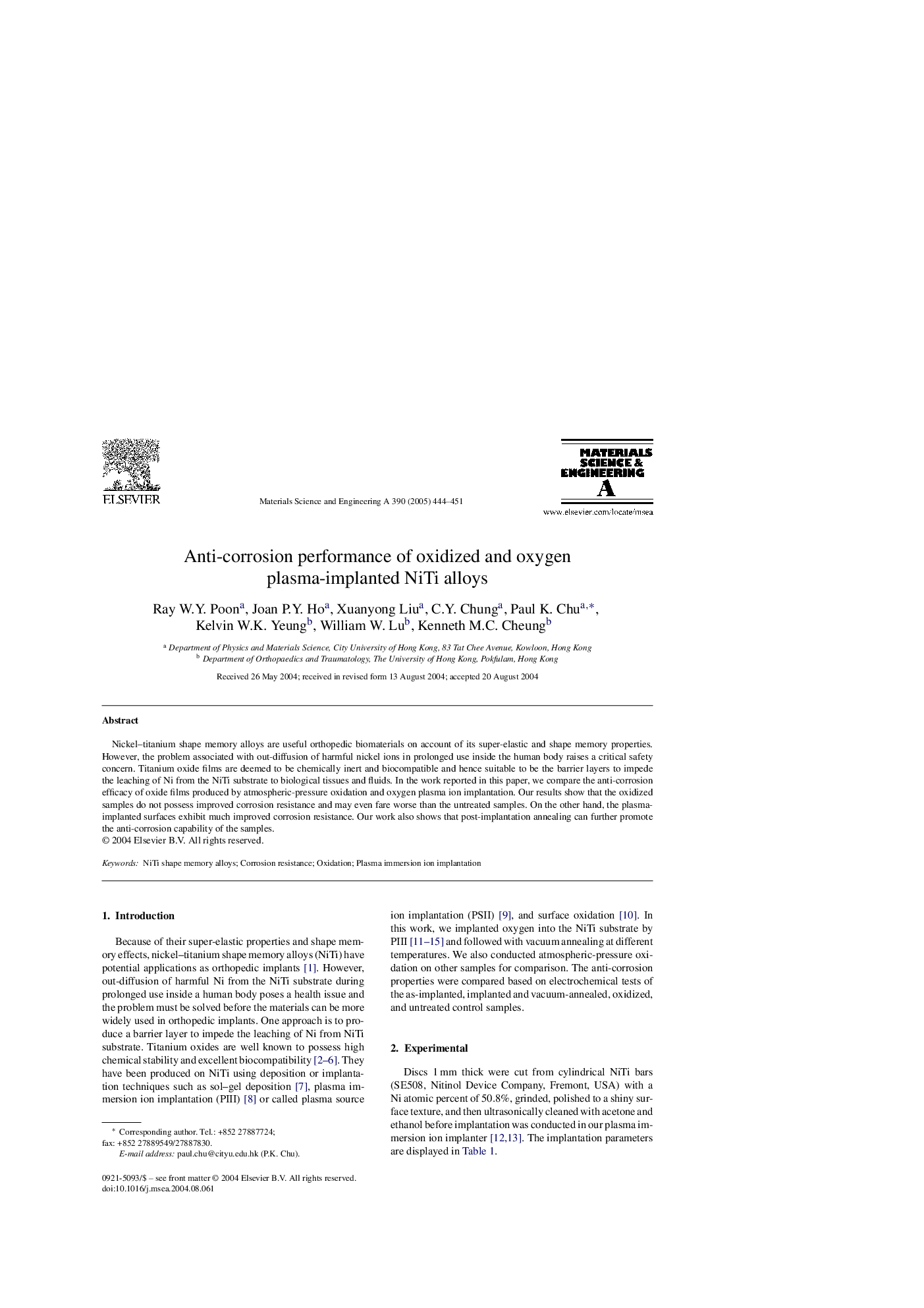| Article ID | Journal | Published Year | Pages | File Type |
|---|---|---|---|---|
| 9796703 | Materials Science and Engineering: A | 2005 | 8 Pages |
Abstract
Nickel-titanium shape memory alloys are useful orthopedic biomaterials on account of its super-elastic and shape memory properties. However, the problem associated with out-diffusion of harmful nickel ions in prolonged use inside the human body raises a critical safety concern. Titanium oxide films are deemed to be chemically inert and biocompatible and hence suitable to be the barrier layers to impede the leaching of Ni from the NiTi substrate to biological tissues and fluids. In the work reported in this paper, we compare the anti-corrosion efficacy of oxide films produced by atmospheric-pressure oxidation and oxygen plasma ion implantation. Our results show that the oxidized samples do not possess improved corrosion resistance and may even fare worse than the untreated samples. On the other hand, the plasma-implanted surfaces exhibit much improved corrosion resistance. Our work also shows that post-implantation annealing can further promote the anti-corrosion capability of the samples.
Related Topics
Physical Sciences and Engineering
Materials Science
Materials Science (General)
Authors
Ray W.Y. Poon, Joan P.Y. Ho, Xuanyong Liu, C.Y. Chung, Paul K. Chu, Kelvin W.K. Yeung, William W. Lu, Kenneth M.C. Cheung,
